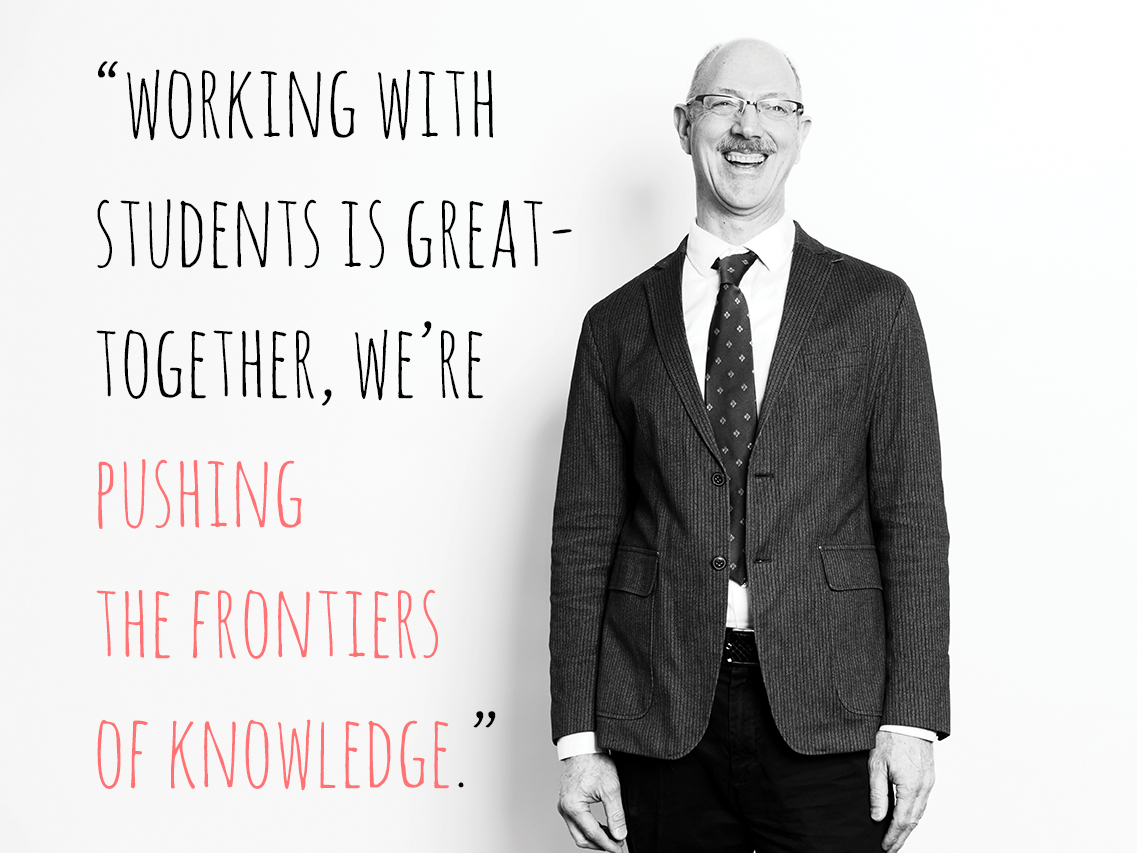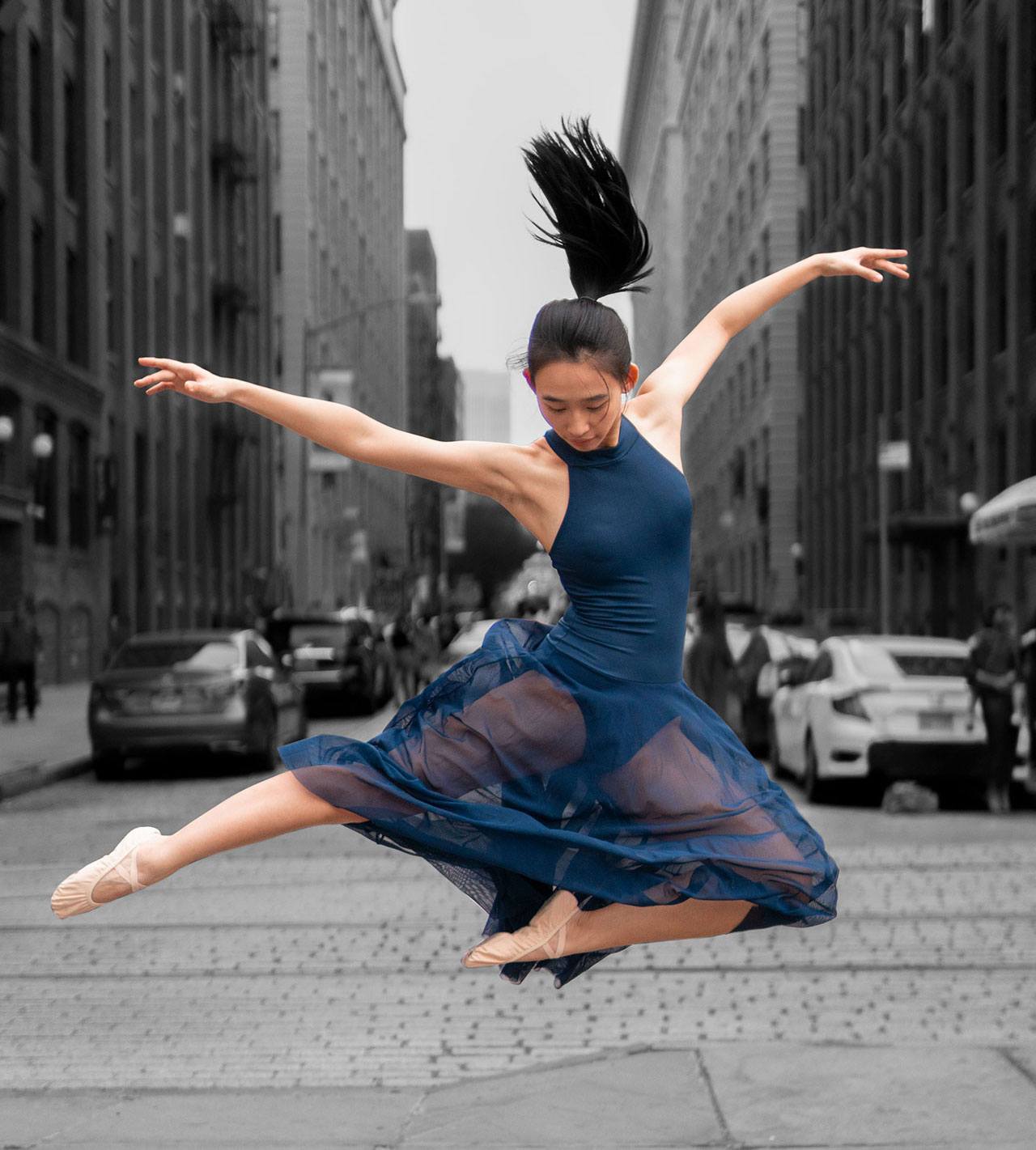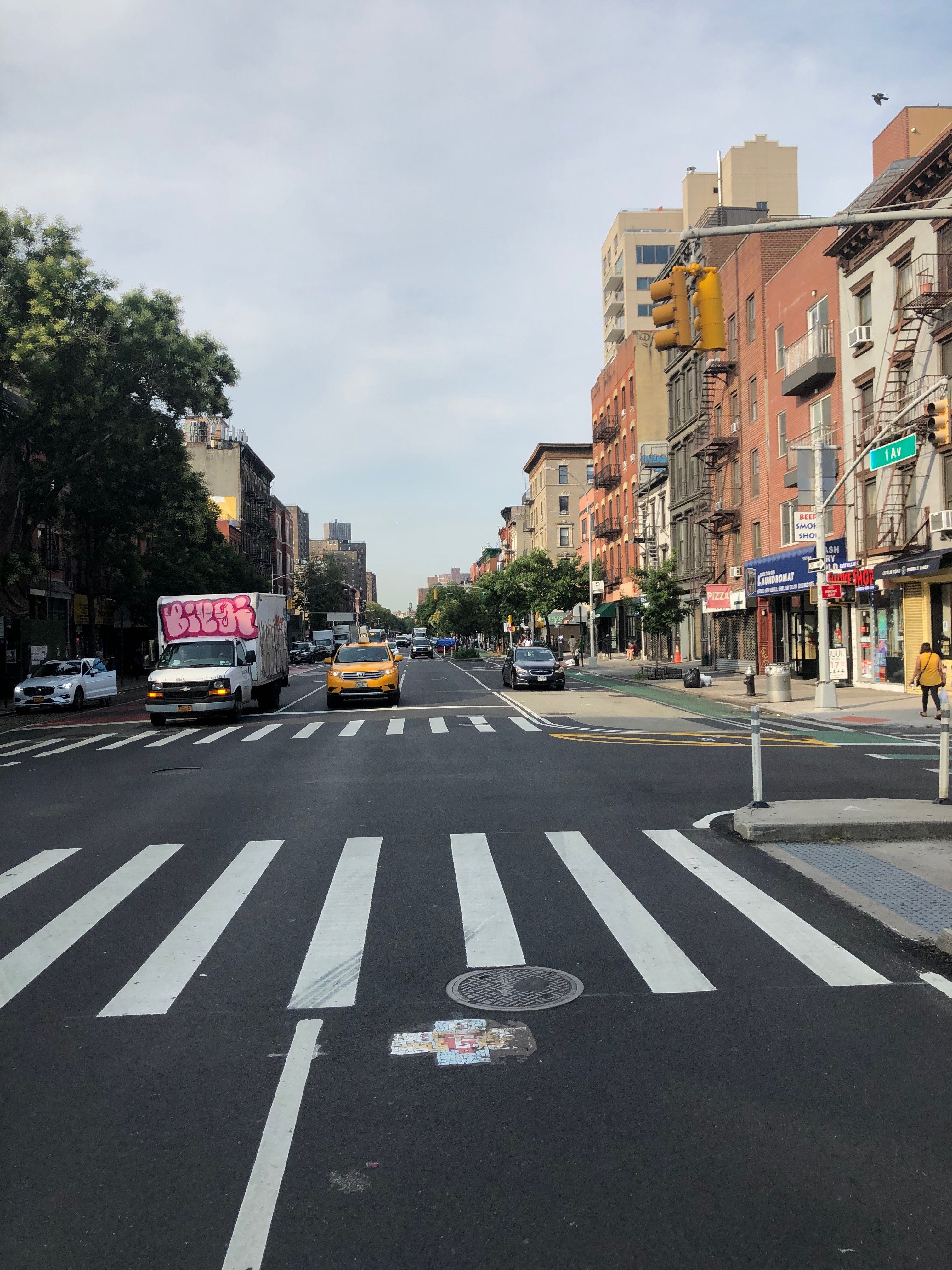Published February 20, 2020
Vertical Farming Takes Root at NYU’s Urban Food Lab
As part of the NYU Tandon School of Engineering’s Vertically Integrated Projects (VIP) program, the Urban Food Lab is one-part vertical urban farm and one-part research laboratory. The Lab gives NYU students the chance to learn vertical farming techniques while designing their own research experiments that use the farm as a resource and contribute to its sustainability. “When students apply their own academic interests to the farm, they learn about vertical farming by working with it to complete their projects, not by me teaching them,” says Omar Gowayed, a Tandon PhD candidate who codeveloped the farm and teaches its for-credit course.
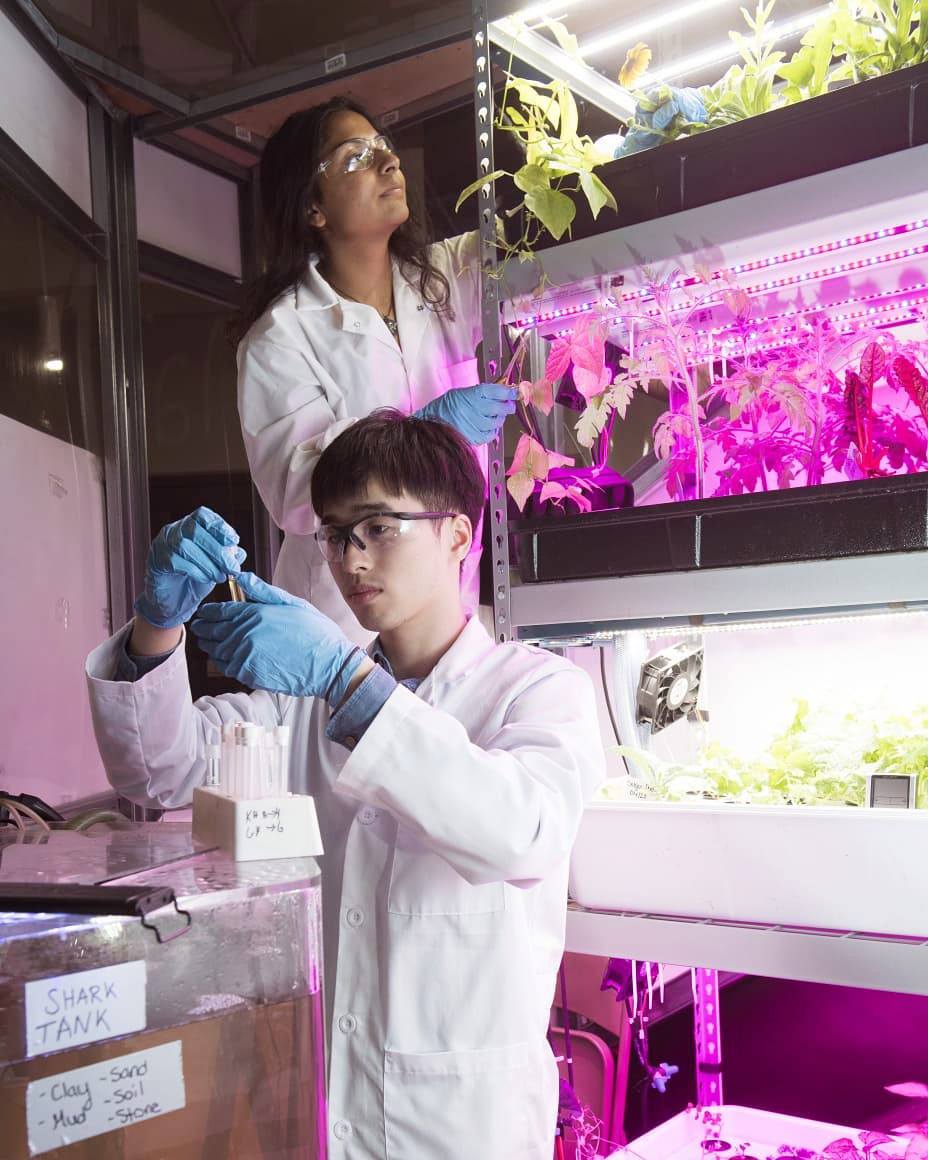
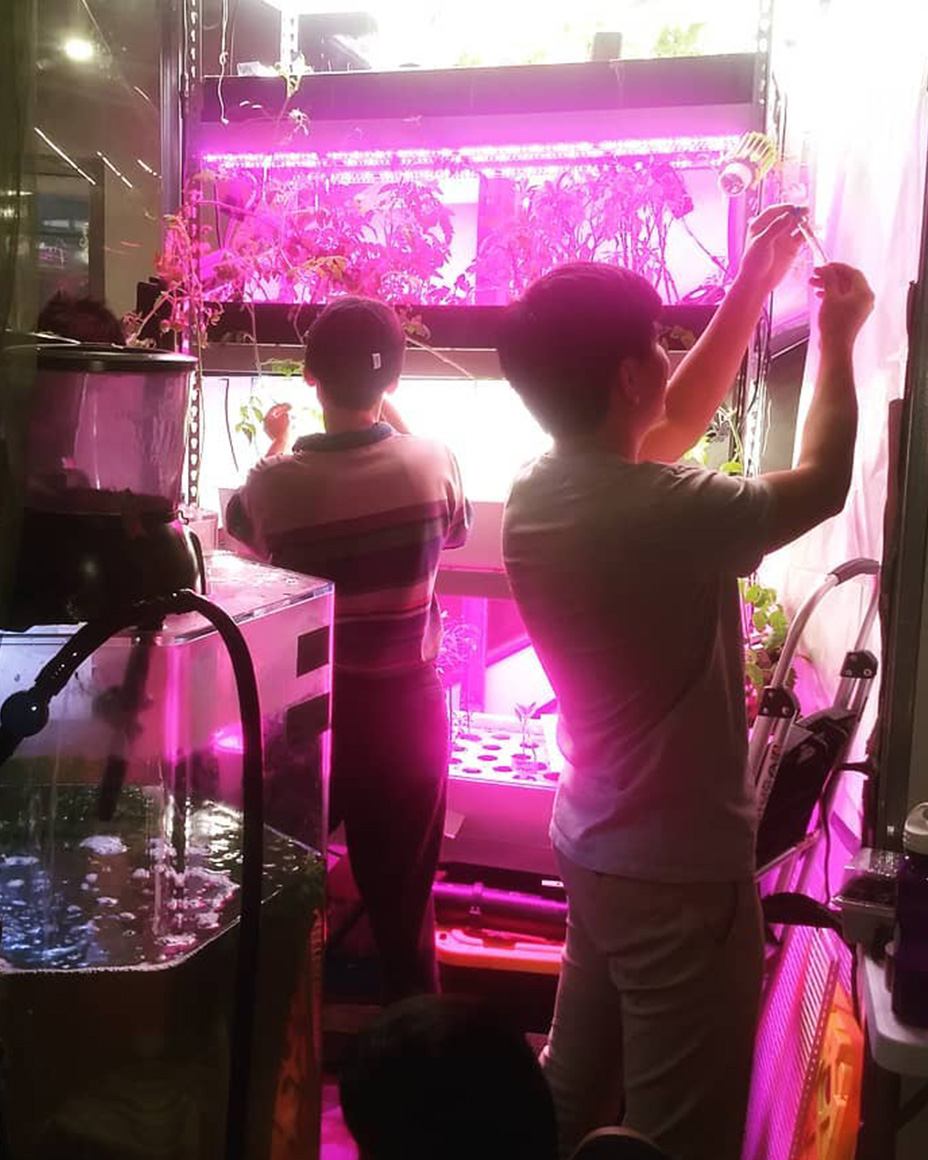
A Cycle of Sustainability
The Urban Food Lab is an aquaponic vertical farm comprised of fish tanks, hoses, grow lamps, and grow shelves. The fish feed on sustainably sourced fish food to produce nutrient-rich waste. The hoses then pump the waste out of the tanks. The waste travels through the hoses to the grow shelves where it is fed directly to the roots of the plants. The plants absorb the nutrient-rich waste, creating an incredibly efficient system that utilizes every last drop of its resources.
Learning by Doing
Students maintain and care for every aspect of the vertical farm. On any given day, this may include regulating temperature and chemical levels in the fish tanks, repairing damaged pumps and hoses, or monitoring the farm’s CO2 and oxygen levels. Students collaborate closely on these tasks, teaching and learning from one another to keep the systems running smoothly. “Everyone is focused on their individual projects here, but we all come together to learn the science behind vertical farming and keep it running. That’s the beauty of the Lab,” says Janae Isaacs, a junior Sustainable Urban Environments major. It’s in this active learning environment that students design and implement their experiments.
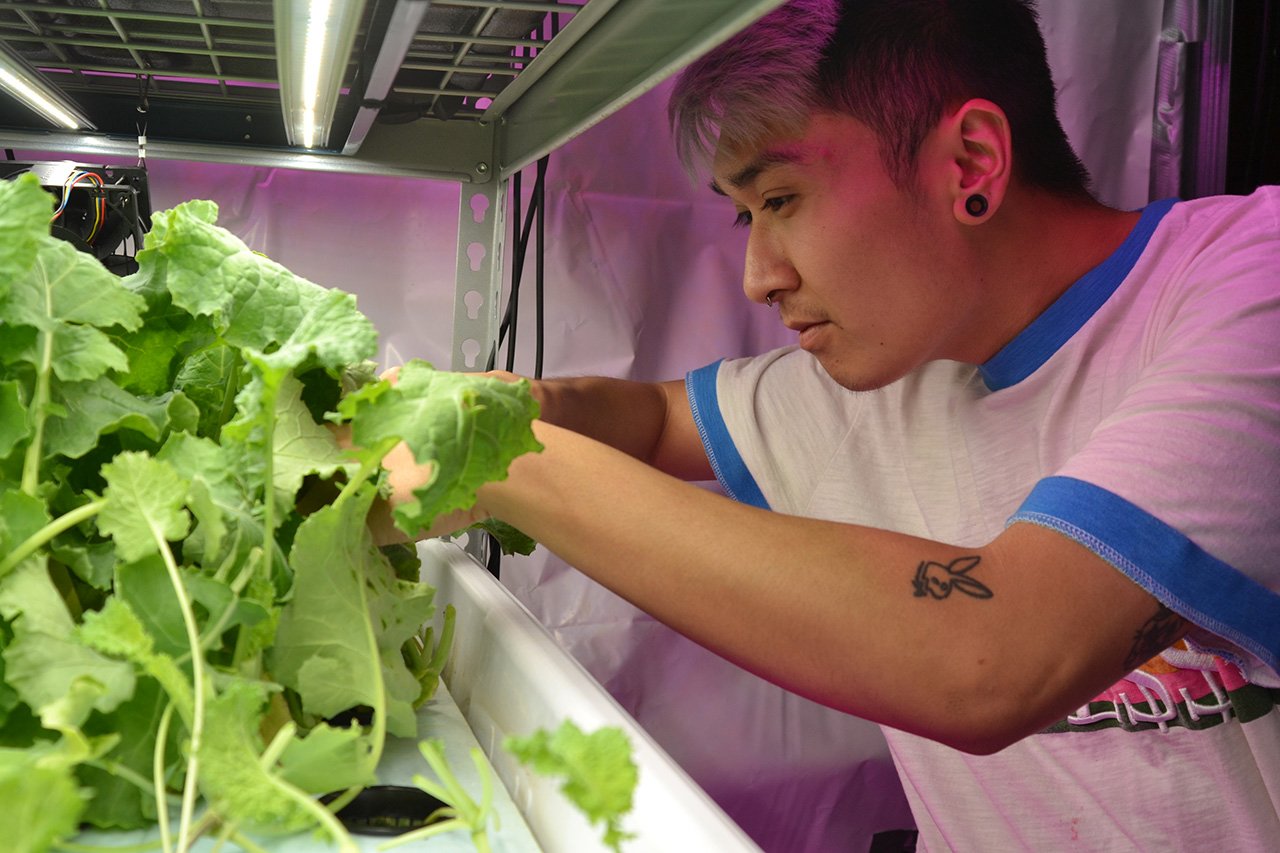
Dive Deep into Experimental Design
Experimental design is a major focus of the Lab. Students interested in joining should have some idea of the research they’d like to conduct but aren’t expected to have a fully formed experiment. In fact, students dedicate a large portion of their time spent in the Lab to solidifying their project design. Working closely with Omar, they gain the skills to construct proposals, fine-tune research processes, craft pitches, and develop presentations—regardless of their major. “There is room at the farm for students from every discipline,” says Omar. “It’s just a matter of thinking creatively about how their discipline—whether it’s science, public policy, business, or communications—applies to the farm.”
Pursue the Research You Care About
Research at the Urban Food Lab covers a wide range of topics. This allows each student to pursue a project that means something to them. For example, Janae set out to raise awareness of the farm through business-oriented research, like branding and marketing. “My goal is to learn as much as I can about how government, business, and technology come together in the push for sustainable infrastructure,” she shares. “Aquaponic vertical farming is a great place to start because it opens up a whole new realm of locally produced food.”
The high price of fruits and vegetables motivated Steve Ucho, a Computer Science major, to join the Lab. “The cost of transportation and importation is one reason for the higher prices. Vertical farming is an extremely viable solution to this problem,” he says. After seeing the amount of light the vertical farm uses, he developed a project to improve the efficiency of its grow lamps. He designed a computer simulation that uses mirrors to reflect and focus “wasted” light back on the plants, boosting their growth rates and reducing energy costs. “Learning new skills through a project I may not have been able to do otherwise is the most rewarding part of my time in the Lab. I enjoy knowing that my work can have a positive impact,” he says.
Sophomore Gianna White’s passion for environmental justice led her to the Urban Food Lab. There, she explores the influence of green spaces, especially in academic settings, on air quality. “I monitor CO2, particulate matter, formaldehyde, and the total level of volatile organic compounds. These are some of the greenhouse gas emissions that most negatively impact human health,” she says. By comparing the air quality of the vertical farm to the air quality of academic spaces lacking greenery, she’s discovered that plants help keep CO2 levels below 1,000 parts per million, the maximum recommended level for optimal human operation.
Experiments conducted at the Lab can even lead to other research opportunities. Professors who are interested in applying Gianna’s research to their own work—including testing the air quality of a mushroom lab and using specific plants to measure ozone levels—have approached her. “This is my first real go at research work, and now that I’ve had the chance to experience it, I definitely want to continue to focus on it in the future,” Gianna says.

